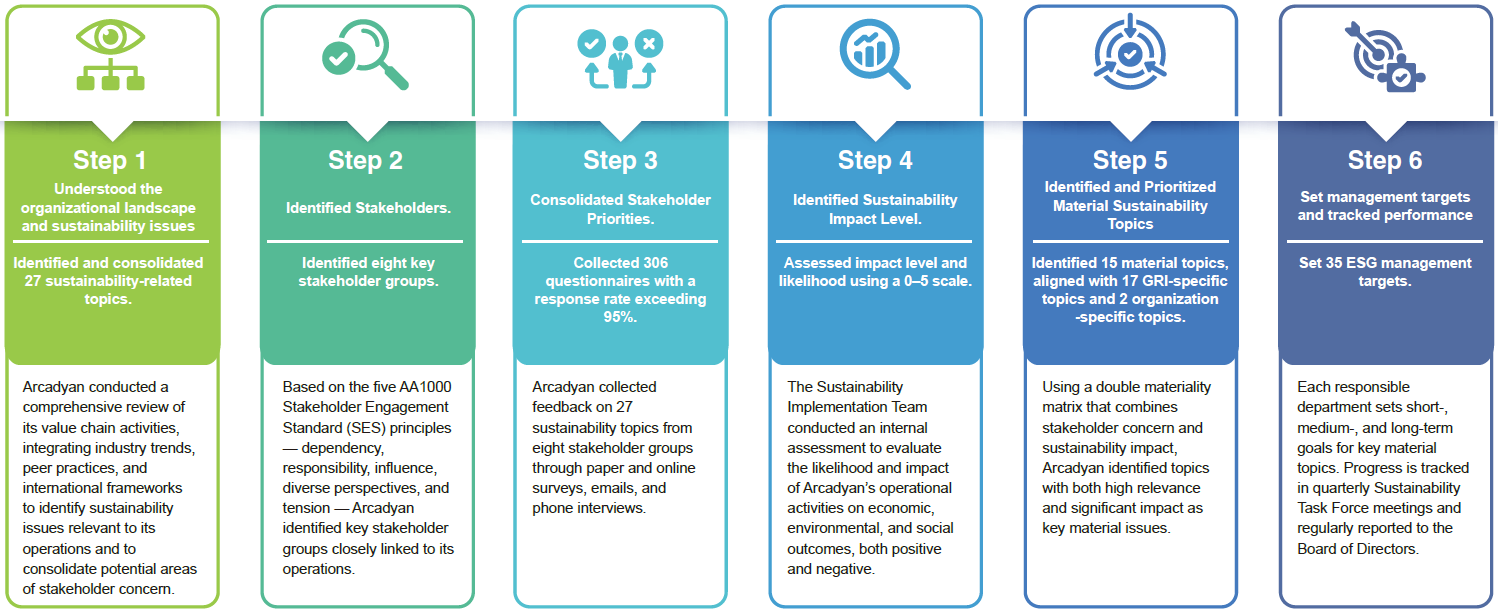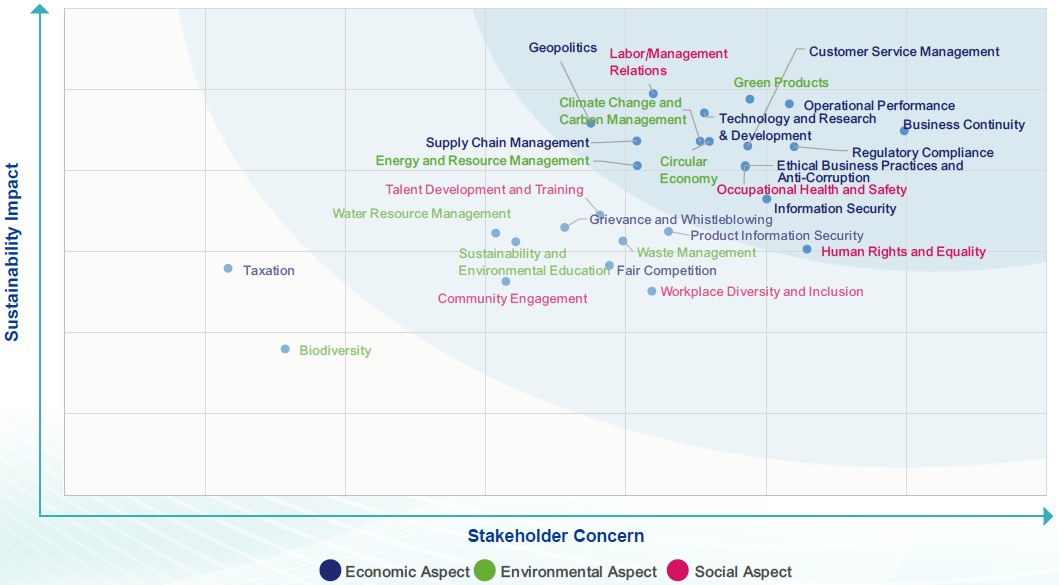Arcadyan conducts an annual materiality assessment following the GRI Universal Standards 2021 (GRI 3: Material Topics), employing a double materiality approach. The process evaluates both environmental and social impacts of operations and their potential effects on business performance. The 2024 results were third-party verified and approved by the Board of Directors, forming the basis for this report's disclosures and sustainability targets, ensuring alignment between strategy and operations.

Arcadyan applies a double materiality analysis, evaluating both "stakeholder concern" and "sustainability impact" to address external expectations and the company's actual influence on sustainable development:
- Stakeholder Concern: Arcadyan surveyed eight key stakeholder groups to assess ESG topic relevance, collecting 306 responses with a response rate over 95%. Respondents included shareholders (46), customers (35), employees (80), suppliers (93), government agencies (21), non-profits (16), community (1), and business partners (14).
- Sustainability Impact: Arcadyan engaged 19 members from the Sustainability Implementation Team to assess impacts across the supply chain, operations, and product use. The evaluation covered positive and negative effects on the economy, environment, and society, considering both actual and potential impacts. A five-point scale was used for quantitative scoring.
Based on the double materiality matrix, Arcadyan identified 15 key sustainability topics with both high stakeholder concern and significant impact. In the economic dimension, these include business performance, integrity and anti-corruption, regulatory compliance, technology and R&D, customer service management, business continuity and geopolitical issues (combined), information security, and supply chain management. Environmental topics cover green products, circular economy, energy and resource management, and climate change and carbon management. In the social dimension, human rights and equality, labor/management relations, and occupational health and safety were identified. Compared to 2023, three new topics were added: business continuity and geopolitical issues, labor/management relations, and occupational health and safety.
The identified material topics align with 17 GRI Sustainability Reporting Standards and 2 Arcadyan-specific topics, forming the core structure of this report. Based on these topics, responsible departments set 35 short-term, medium, and long-term sustainability goals, with progress regularly reviewed by the Sustainability Implementation Team and reported to the Board. For non-material topics, relevant policies, actions, and outcomes are also disclosed to present a comprehensive view of Arcadyan's sustainability governance.
